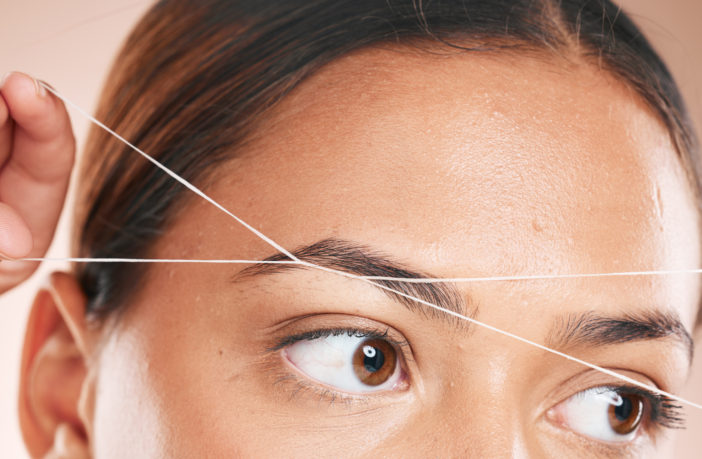I’ve had both, and despite my appreciation for the meticulous results that come with the latter, I eventually had to give up threading due to the pain. But some people don’t even have the desire to try it — like Khloe Kardashian. Her issue isn’t with the possible pain though.
The reality star said on her website that she is and will always be #teamwaxing after learning that someone contracted herpes from their threader.
“I heard the grossest story about threading!” she wrote. “Someone had herpes on their mouth and then the client got it on their brows! I don’t thread because someone’s saliva might be going on my face!”
The saliva statement is in reference to the fact that some estheticians put a part of the thread through their mouth before applying it to your face. And while that’s gross, and I’ve seen it happen, I thought, herpes though? What are the chances of you contracting that for real?
According to Jennifer Haythe, M.D., of Columbia University Medical Center, who spoke to SELF magazine, the chances are higher than I assumed due to all of the bacteria we have in our mouths. The virus could be transferred from their mouth onto the thread, and in turn, be transferred onto the skin and in it due to broken skin.
But it’s not just the mouth that can be a troublemaker when one goes for threading. The magazine also pointed out that herpes can be passed if the esthetician isn’t wearing gloves and has herpes on their fingers, which happens if they have a condition called herpetic whitlow. A staph infection is also possible, especially in cases where threads might be reused.
However, the chances of herpes being spread so easily aren’t super high. Likely because of the fact that at the most contagious times, oral herpes blister and then start to drain. If it’s that apparent, you would hope the technician wouldn’t feel comfortable touching someone’s face — or that you at least would notice such a sore and run for the hills. At a less contagious time (aka, no more oozing), it’s less likely that virus will be passed.
So if all that sounds like too much to be concerned with, there’s always waxing. But then again, not every esthetician who waxes is as hygienic as they could be either. So if you see that your chosen place of beauty maintenance is not following proper safety precautions, speak up — or take your business elsewhere. Better that than worrying about contracting a virus while just trying to keep your ‘brows on point.



